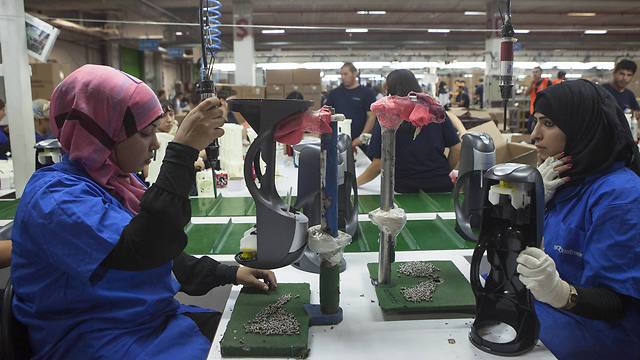
Give young Bedouin a chance
Op-ed: Israel should take advantage of the immense potential latent in the Bedouin society in the Negev in order to meet the growing needs of industry, commerce and the public sector.
Facts are one thing you can't argue with. Fact number one: The Negev is the area that receives the smallest amount of government funding and the one the state invests in the least. Fact number two: The Bedouin sector receives the least amount of attention and resources from the state.
This sounds like a prologue for a pessimistic column about the state of the most disadvantaged group in the most disadvantaged area of the periphery. But it is the complete opposite of that: This is an optimistic column that seeks to highlight the immense potential in the Negev today to remedy the situation and bring good tidings both to the area and the entire country.
The current reality in the Negev is complex, to put it mildly. Eighty percent of the Negev’s population are Jewish and 20 percent (some 200,000 people) are Bedouin. Sixty-two percent of the Bedouin society is under the age of 18. Unlike the Jews in the Negev, the migration rate for young Bedouins is zero. They aren't going anywhere.
The State of Israel must give this immense force tools to integrate into society and become productive members thereof. That means, primarily, to provide them with quality education, and later, to open doors for them and provide them with employment opportunities in high-tech, industry and the public sector.
Even now we can see a significant increase in the number of young Bedouins who get into "new" fields of employment like medicine, pharmacy, and para-medical professions. But positions in the public sector and many other fields of employment are still closed off to them almost entirely.
On the other hand, in recent years, the Negev has experienced a wave of development and growth. The state is investing more resources, road and train infrastructure has been improved, which has helped, and factories from central Israel have been discovering the Negev and moving there. Even in high-tech, a small move in the right direction can be detected. A more in-depth examination of the large fields of employment reveals that given the chance, the younger generation of Bedouin, both men and women, has a lot to contribute to this positive trend.
Take, for example, the new SodaStream factory in the Rahat-Lehavim junction. Out of the hundreds of new employees recruited, some 300 of them are Bedouin, including some 200 Bedouin women who are working for the first time in their lives. Take also, for example, the Oz & Hadar chicken factory in Segev Shalom, that employs over 600 employees, most of them Bedouin. It is the same in Park Noam, where Tnuva moved to, and the Ne'ot Hovav factories, which turned into an attractive eco-industrial complex for new factories from all over Israel.
The government must pair the increasingly growing needs of the industry, trade and public sector with the immense potential of the Bedouin society, whose members are just waiting to become part of the workforce.
For this reason, we at Ajeec-Nisped have organized the first conference for Equal Opportunities in the Negev that starts on Tuesday in the town of Rahat. It will be attended by members of the Bedouin community, Jewish municipality heads from the Negev, influential figures from large organizations, neighbors, Economy Minister Aryeh Deri and above all - President Reuven Rivlin.
With this conference, we want to create a platform for discussion between all relevant bodies, which could give hope to the countless of young Bedouins, and strengthen the feeling of partnership between all groups in the Negev, in order to realize the dream of turning the Negev into the strongest district in the country. We want to believe that the economy minister (and perhaps the entire government) will warmly adopt the plan we will outline.
The writer is the co-executive director of the Ajeec-Nisped Negev institute.











